Take a photo of a barcode or cover
The 50 Best Sci-Fi Books of All Time (Esquire, 2022) - NEW VERSION
89 participants (50 books)
Overview
Since time immemorial, mankind has been looking up at the stars and dreaming, but it was only centuries ago that we started turning those dreams into fiction. And what remarkable dreams they are—dreams of distant worlds, unearthly creatures, parallel universes, artificial intelligence, and so much more. Today, we call those dreams science fiction.
Science fiction’s earliest inklings began in the mid-1600s, when Johannes Kepler and Francis Godwin wrote pioneering stories about voyages to the moon. Some scholars argue that science fiction as we now understand it was truly born in 1818, when Mary Shelley published Frankenstein, the first novel of its kind whose events are explained by science, not mysticism or miracles. Now, two centuries later, sci-fi is a sprawling and lucrative multimedia genre with countless sub-genres, such as dystopian fiction, post-apocalyptic fiction, and climate fiction, just to name a few. It’s also remarkably porous, allowing for some overlap with genres like fantasy and horror.
Sci-fi brings out the best in our imaginations and evokes a sense of wonder, but it also inspires a spirit of questioning. Through the enduring themes of sci-fi, we can examine the zeitgeist’s cultural context and ethical questions. Our favorite works in the genre make good on this promise, meditating on everything from identity to oppression to morality. As the Nobel Prize-winning novelist Doris Lessing said, "Science fiction is some of the best social fiction of our time.”
Choosing the fifty best science fiction books of all time wasn’t easy, so to get the job done, we had to establish some guardrails. Though we assessed single installments as representatives of their series, we limited the list to one book per author. We also emphasized books that brought something new and innovative to the genre; to borrow a great sci-fi turn of phrase, books that “boldly go where no one has gone before.”
Now, in ranked order, here are the best science fiction books of all time.
All notes on the books are from the article:
https://www.esquire.com/entertainment/books/g39358054/best-sci-fi-books/
All notes on the books are from the article:
https://www.esquire.com/entertainment/books/g39358054/best-sci-fi-books/
The 50 Best Sci-Fi Books of All Time (Esquire, 2022) - NEW VERSION
89 participants (50 books)
Overview
Since time immemorial, mankind has been looking up at the stars and dreaming, but it was only centuries ago that we started turning those dreams into fiction. And what remarkable dreams they are—dreams of distant worlds, unearthly creatures, parallel universes, artificial intelligence, and so much more. Today, we call those dreams science fiction.
Science fiction’s earliest inklings began in the mid-1600s, when Johannes Kepler and Francis Godwin wrote pioneering stories about voyages to the moon. Some scholars argue that science fiction as we now understand it was truly born in 1818, when Mary Shelley published Frankenstein, the first novel of its kind whose events are explained by science, not mysticism or miracles. Now, two centuries later, sci-fi is a sprawling and lucrative multimedia genre with countless sub-genres, such as dystopian fiction, post-apocalyptic fiction, and climate fiction, just to name a few. It’s also remarkably porous, allowing for some overlap with genres like fantasy and horror.
Sci-fi brings out the best in our imaginations and evokes a sense of wonder, but it also inspires a spirit of questioning. Through the enduring themes of sci-fi, we can examine the zeitgeist’s cultural context and ethical questions. Our favorite works in the genre make good on this promise, meditating on everything from identity to oppression to morality. As the Nobel Prize-winning novelist Doris Lessing said, "Science fiction is some of the best social fiction of our time.”
Choosing the fifty best science fiction books of all time wasn’t easy, so to get the job done, we had to establish some guardrails. Though we assessed single installments as representatives of their series, we limited the list to one book per author. We also emphasized books that brought something new and innovative to the genre; to borrow a great sci-fi turn of phrase, books that “boldly go where no one has gone before.”
Now, in ranked order, here are the best science fiction books of all time.
All notes on the books are from the article:
https://www.esquire.com/entertainment/books/g39358054/best-sci-fi-books/
All notes on the books are from the article:
https://www.esquire.com/entertainment/books/g39358054/best-sci-fi-books/
Challenge Books
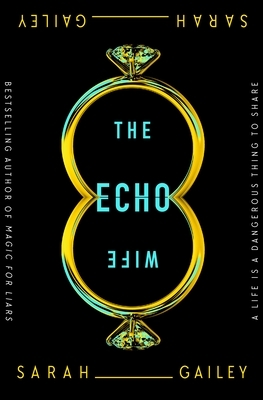
The Echo Wife
Sarah Gailey
50. Westworld meets The Stepford Wives in this gripping revenge thriller about the unlikely alliance between a woman and her clone. When geneticist Evelyn Caldwell learns that her husband Nathan is cheating on her, she soon ferrets out the truth—rather than work on their strained marriage, Nathan stole Evelyn’s proprietary cloning technology and replaced her with a more docile substitute. But when Evelyn finds her clone standing over Nathan’s dead body, crying, “It was self-defense,” these quasi-sisters will have to work together to conceal the crime and preserve Evelyn’s scientific reputation. The Echo Wife’s juicy premise runs deep, raising eerie questions about love, justice, and individuality.
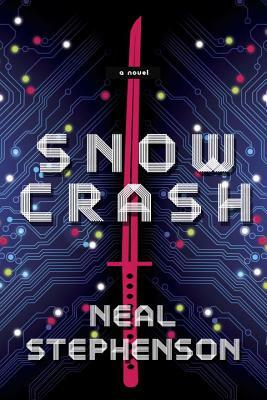
Snow Crash
Neal Stephenson
49. Long before Facebook’s Metaverse, Stephenson coined the term in this cyberpunk acid trip of a novel. Snow Crash’s Hiro Protagonist lives a double life: in reality, he delivers pizzas for the Mafia, but in the Metaverse, he’s a hacker and a warrior prince. When he learns about a lethal virus picking off hackers one by one, his race to find its dastardly architect sends him pinballing through everything from technological conspiracy to ancient Sumerian mythology. Sexy, action-packed, and downright prophetic in its vision of our virtual future, you'll want to strap in tight for this dizzying techno-thriller.
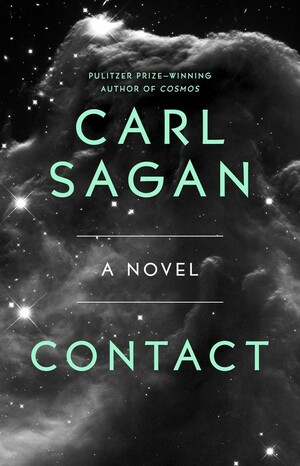
Contact
Carl Sagan
48. The great Carl Sagan wrote dozens of works of nonfiction, but just one novel: Contact, a 1985 bestseller that later became a Jodie Foster flick. Sagan’s preoccupations with intelligent life come into view through Dr. Ellie Arroway, a principled astronomer who detects and decrypts a deep-space transmission from a planetary system far, far away. At the transmission’s urging, the nations of the world race to build a mysterious machine, but faith leaders call the enterprise (and the rationality of science) into question. Through this thoughtful, layered story, Sagan plumbs the often antagonistic relationship between science and religion, asking if perhaps both are seeking contact in different forms. After all, disciples from each camp can agree on one thing: “The universe is a pretty big place. If it's just us, seems like an awful waste of space.”
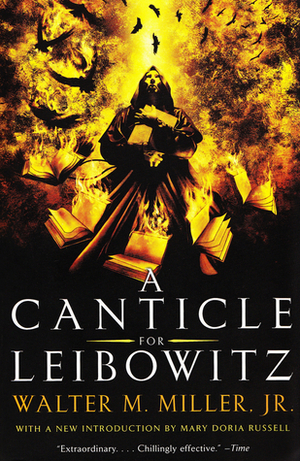
A Canticle for Leibowitz
Walter M. Miller, Jr.
47. After World War III, Earth has fallen into a new Dark Age; most of the United States is a radioactive wasteland, and civilization is in tatters. While violent packs of survivors burn books and slaughter those who can read, the monks of St. Leibowitz preserve the heritage of the past by smuggling important volumes into their monastery. As the novel progresses throughout the centuries and a new Renaissance gives way to a second space age, so much about modern life changes, but at the monastery, much remains the same. Miller’s ambitious sci-fi classic captures the human tendency for self-destruction, as viewed through the cyclical rise and fall of civilization, but it’s not all doom, gloom, and nuclear warfare—A Canticle for Leibowitz is a moving paean to the power of knowledge and hope.
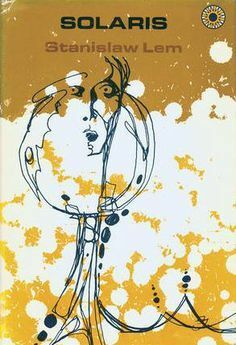
Solaris
Stanisław Lem
46. No one writes about intelligent life quite like Stanislaw Lem, who scoffed at little green men and instead put the alien in alien. In this dense and brainy novel, scientist Kris Kelvin lands on the planet Solaris to study the mysterious ocean enveloping its surface. Kelvin and his crew soon discover that this massive ocean is sentient: aloof, unknowable, and mysterious, it explores these explorers, reflecting their most painful memories back at them. What if aliens don’t care to know us, and what if we can’t possibly dream of understanding them anyway? Lem never tired of asking these questions, but of all his novels, Solaris makes our list for its perfect encapsulation of his singular vision.
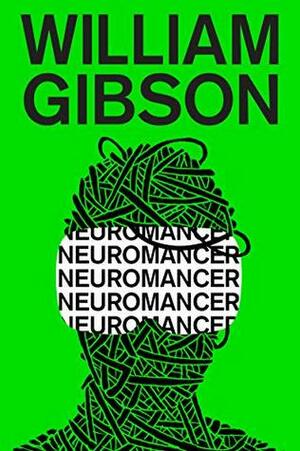
Neuromancer
William Gibson
45. “Cyberspace: a consensual hallucination experienced daily by billions of legitimate operators, in every nation.” This is the setting of William Gibson’s Neuromancer—sounds awfully familiar, doesn’t it? The winner of Hugo, Nebula, and Philip K. Dick Awards, Neuromancer is often called the definitive novel of the cyberpunk genre (it went on to heavily influence the creators of The X-Files and The Matrix). Our hero is Case, an ex-cyber cowboy banished from cyberspace by his former employers. When a criminal syndicate comes knocking, promising to restore Case’s uplink in exchange for his hacking services, the novel transforms into a kaleidoscopic espionage thriller. Trippy, surreal, and slick as hell, Neuromancer is a ride you won’t soon forget.
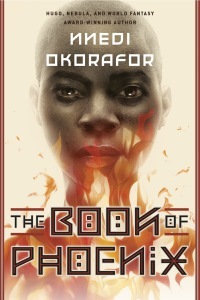
The Book of Phoenix
Nnedi Okorafor
44. Science fiction and magical realism collide in this imaginative prequel to Okorafor’s World Fantasy Award-winning Who Fears Death. Here we meet Phoenix, an “accelerated woman” grown in New York’s Tower 7. Though she’s only two years old, she has the mind and body of a middle-aged adult, along with superhuman abilities. Phoenix suffers a painful awakening when her lover takes his life under dubious circumstances, proving that Tower 7 is less of a home and more of a prison. Her daring escape leads her to Ghana, where she learns brutal truths about colonialism, and vows to fight back against her oppressors. Blistering with love and rage, Phoenix’s fight for justice is downright electrifying.
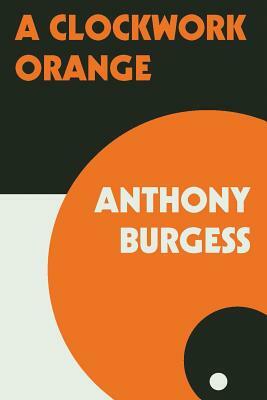
A Clockwork Orange
Anthony Burgess
43. In the many decades since its 1962 publication, A Clockwork Orange has become such a high school curriculum fixture that it’s easy to forget just how damn good it is. Burgess’ transgressive dystopia is the story of Alex, a teenage gangster who leads his fellow droogs in shocking acts of “ultra-violence”—until he’s apprehended by the draconian police. In prison, Alex is subjected to a brutal reconditioning, leaving him a changed and diminished man. Told in high-flying, pyrotechnic patois that’s since bled into the cultural lexicon, A Clockwork Orange is a postmodern triumph.
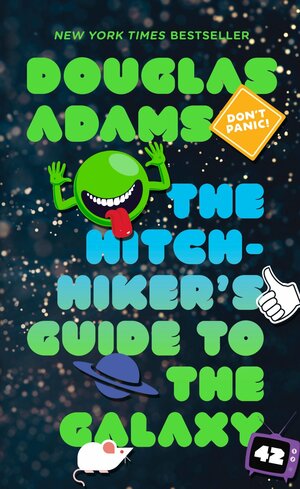
The Hitchhiker's Guide to the Galaxy
Douglas Adams
42. Few science fiction novels can claim to have inspired their own holiday, but The Hitchhiker’s Guide to the Galaxy isn’t your ordinary science fiction novel (the holiday is Towel Day, if you must know). Adams’s signature work has cast a long shadow over popular culture, and for good reason. This absurdist comedy is the story of Arthur Dent, a hapless everyman who wanders the universe after Earth is destroyed to make way for the galactic highway. As he romps through space with alien travel writer Ford Prefect and a crew of android oddballs, Dent’s adventures illuminate how “utterly insignificant” our “little blue green planet” truly is. In the face of absurdity, Adams reminds us, what else can we do but laugh?
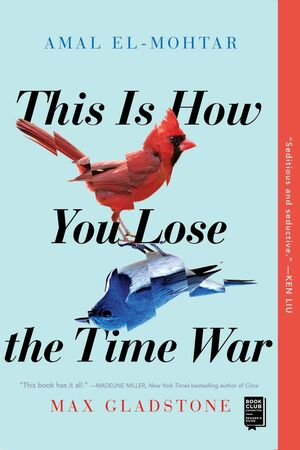
This Is How You Lose the Time War
Max Gladstone, Amal El-Mohtar
41. Structured as a poetic correspondence between two time-traveling spies, this forbidden romance puts the “distance” in “long-distance relationship.” As Agents Red and Blue hopscotch through the multiverse, altering history on behalf of their respective military superpowers, they leave behind secret messages for one another—first taunting, then flirtatious, then flowering with love and devotion. “There’s a kind of time travel in letters, isn’t there?” Blue muses. “Letters are structures, not events,” Red replies. “Yours give me a place to live inside.” Amid the dangerous chaos of their circumstances, Red and Blue find constants in one another. Playful and imaginative, told with lyrical grace, this is a dazzling puzzle box of a novella.
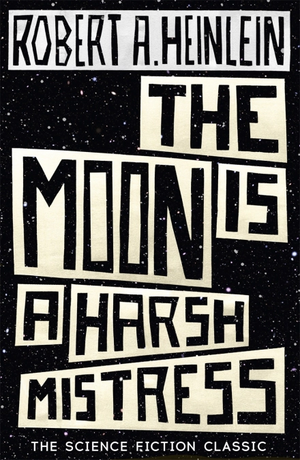
The Moon Is a Harsh Mistress
Robert A. Heinlein
40. Though Heinlein is considered one of “The Big Three” science fiction writers (along with Isaac Asimov and Arthur C. Clarke), he’s arguably the least well-known among casual sci-fi readers. If you’re new here, start your Heinlein odyssey with his best novel, The Moon is a Harsh Mistress. In the year 2076, a penal colony on the moon rises up against the tyranny of Earth, declaring themselves the Free State of Luna, and themselves "the loonies." It’s a parable for the American Revolution, but instead of tea dumped in the Boston harbor, we’ve got electromagnetic catapults hurling moon rocks at Earth with the force of atomic bombs. Fun fact: the phrase, “There ain’t no such thing as a free lunch” originated in this novel.
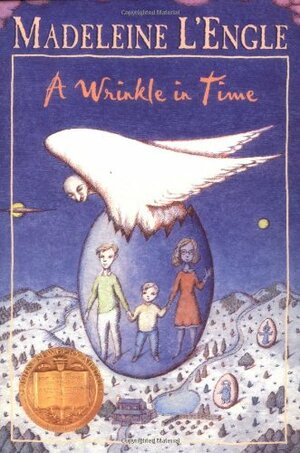
A Wrinkle in Time
Madeleine L'Engle
39. Who says science fiction is only for adults? L’Engle’s enduring young adult classic is the story of tweenage siblings Meg and Charles Murray, who travel through the universe by way of a space-time-folding tesseract. In search of their missing father, Meg and Charles encounter galactic marvels of all kinds, from a utopian planet to the source of all evil in the universe. A Wrinkle in Time never makes the mistake of assuming that young readers can’t handle all the brainy concepts and mature themes that science fiction has to offer. Though it’s an unforgettable read at any age, it’s perhaps best-loved by the generations of readers who remember it as their gateway to sci-fi.
